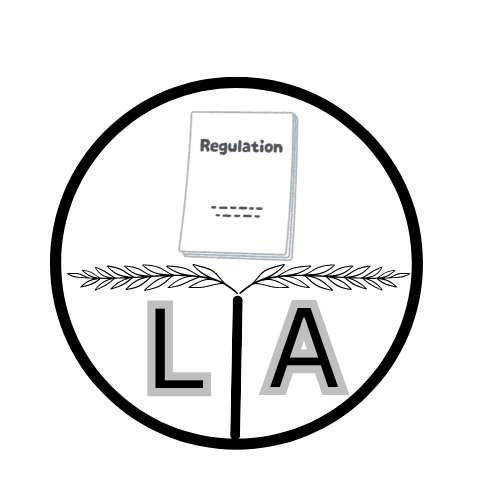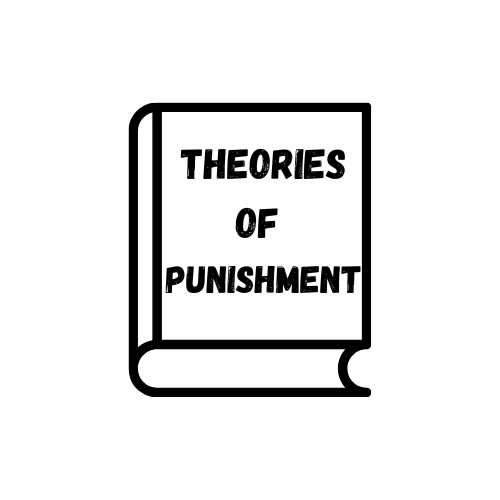Theories of punishment
Theories of punishment
Theories of punishment
Theories of punishment
Theories of punishment
Theories of punishment
Welcome to Law Adhoc Tutorials !
Law Adhoc Tutorials is an education platform. It helps law students get high quality notes to make their study easier. Law Adhoc Tutorials provides full and completes notes for free for each subjects of law.
Important Legal Maxims : https://lawadhoctutorials.com/legal-maxims/
Law of Torts notes pdf : https://lawadhoctutorials.com/notespdf/
YouTube Video Link for Law of Torts Lecture : https://youtu.be/fRx-i5fk3jo?si=VUKnYdMrS3qbU_1f
All subjects law notes : https://lawadhoctutorials.com/subject/
For more law notes visit: https://lawbhoomi.com/
Penology Notes Download
Download Link
Click Here to Download- Concept of punishment
Theories of punishment
Introduction
Punishment is a critical aspect of criminal law. Every society implements social control through specific laws and corresponding deterrents. Punishment serves as a consequence for the wrongdoer’s actions. The primary aim of punishment is to
provide relief to the aggrieved party and ensure law and order within society.
The theory of punishment deals with the principles on the basis of which punishment is to be given to the offender, with the object of safeguarding a society deprived of law and order. There are four types of theories of punishment.
1. Deterrent theory.
2. Retributive theory.
3. Preventive theory.
4. Reformative theory.
5. Expiatory Theory
Retribution theory
Retribution means something done or given to somebody as punishment or vengeance. It is just retribution for their crime. This theory says to return the same injury to theculprit or wrongdoer, which he had committed against the victim. It says ‘tit for tat’ . It
is often assimilated revenge, but a public rather than an act of private revenge.
This theory punishes culprits because they are deserving of it. It says to offenders that ‘you have caused harm or damage to society, now you should have to pay it back to society.
Preventive theory
This theory aims to prevent crime rather than take revenge. This theory is also called the disablement theory. Preventive theory penalizes the wrongdoer, to stop future crime in the society, by separating the criminals from society. This theory believes that the aim of punishment is restraint.
If a criminal is confined, executed, otherwise incapacitated, such punishment will deny the criminal ability or opportunity to commit further crimes and prevent the society from that harm.In the case of Sunil Batra v. Delhi Administration (1978), the court of law observed that if the prisoner is violent or dangerous, solitary confinement is necessary to prevent and segregate these offenders from society, thereby abiding by the retributive theory of punishment.
Deterrent theory
Deterrent theory aims to stop unwanted actions by making people afraid of the consequences. It seeks to discourage specific behaviors by providing warnings or restrictions. “Deter” means to stop someone from taking action, and various factors can keep people from doing wrong. In general, those who understand the risks aremore likely to avoid negative actions.
In the case of the State of H.P. v. Nirmala Devi (2017), the court of law had opined that if the crime done is heinous and serious against society then the deterrent theory becomes more relevant, for those guilty will be punished to deter other prospective offenders.
Reformative theory
This theory helps reform criminals and turn them into law-abiding citizens. No one is born a criminal; crimes can happen by accident or in certain situations. Offenders should have another chance to correct their mistakes. Correctional homes, juvenile homes, training schools, and reformatories offer this opportunity. The main goal of this theory is to rehabilitate inmates.
It was the case of Dharambir v. State of Uttar Pradesh (1979), which became the initiation of the concept of open jails in India which generally helps in reforming
young offenders.
Expiatory Theory
This theory focuses on conscience-oriented cleansing of hearts through repentance, compunction, atonement, and reparation. The antithesis to the belief that, if a wrongdoer repents his wrongful deeds wholeheartedly, he deserves to be forgiven and let off, Expiatory Theory relies on the principle, “To pay for the sin committed” .
It favours that a wrongdoer must be punished for inflicting pain or causing any sort of loss to another person. Expiatory forms of punishment favour economical and compensatory forms of punishment. It dialogues compensation to be provided to the victim by the accused, instead of perpetrating physical pain as punishment to the latter.
Theories of punishment
Penology and Victimology Notes : https://lawadhoctutorials.com/penology-and-victimology-notes/
Penology and Victimology Notes PDF : https://lawadhoctutorials.com/penology-and-victimology-notes-pdf/
Education of Prisoners Notes : https://lawadhoctutorials.com/education-of-prisoners/
Vocational Training for Prisoners notes : https://lawadhoctutorials.com/vocational-training-for-prisoners-in-india/
Rights and Duties of Prisoners notes :- https://lawadhoctutorials.com/rights-and-duties-of-prisoners/
Model Prison Act Notes : https://lawadhoctutorials.com/model-prisons-act-2003/
All subjects law notes : https://lawadhoctutorials.com/subject/
All subjects law notes in pdf : https://lawadhoctutorials.com/notespdf/
Law of torts lecture link on YouTube: https://youtu.be/fRx-i5fk3jo?si=QPnyduoa3IeZoI5W
Free and easy to access law notes. The law notes are available for all law subjects. Please check the below-mentioned list for complete law notes.
Click on the specific subject to view its notes.


